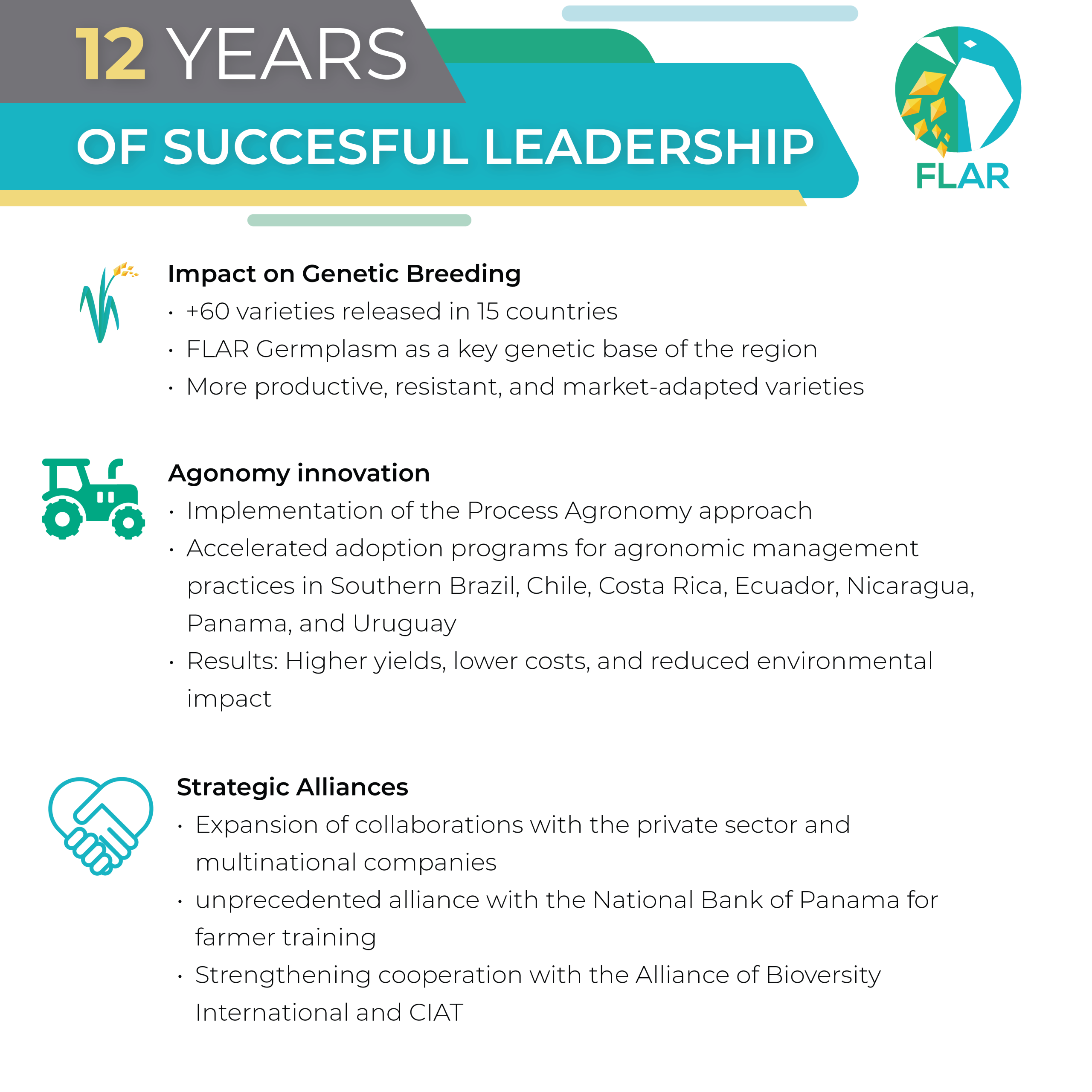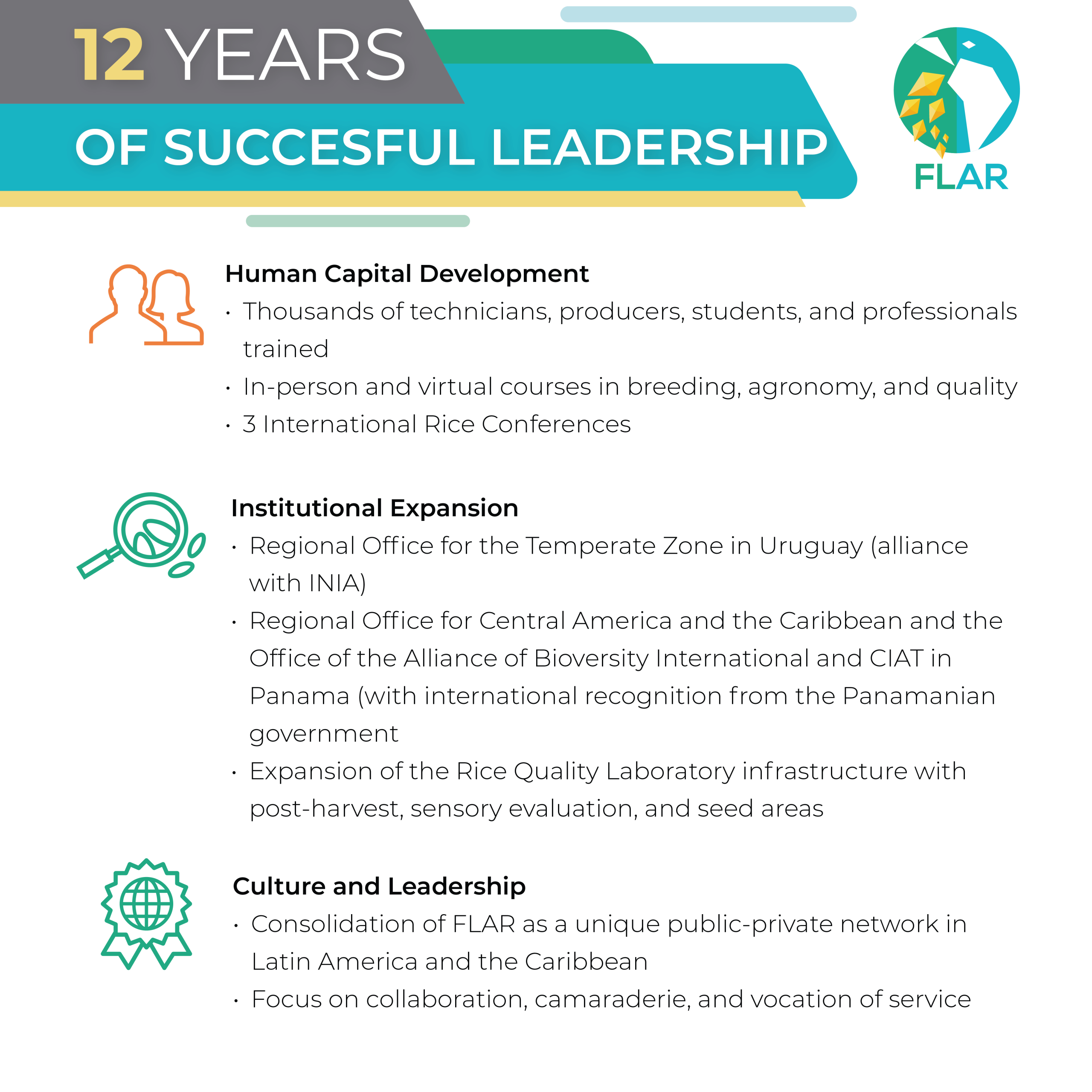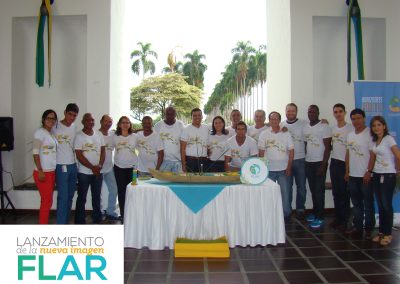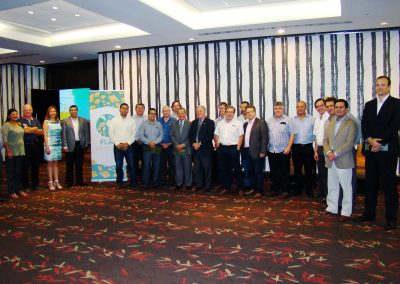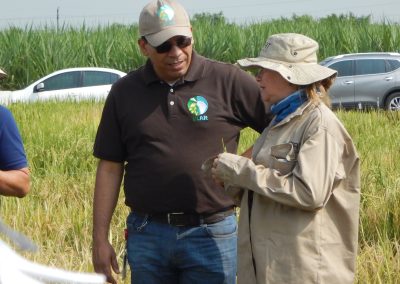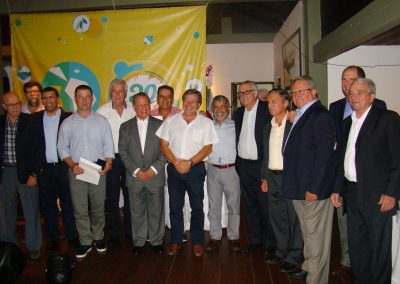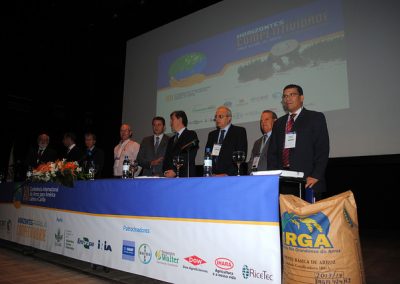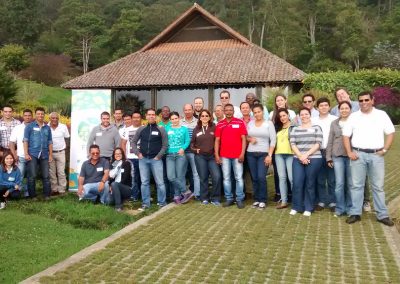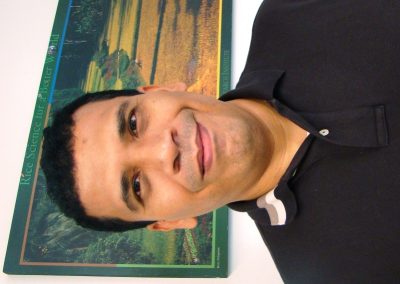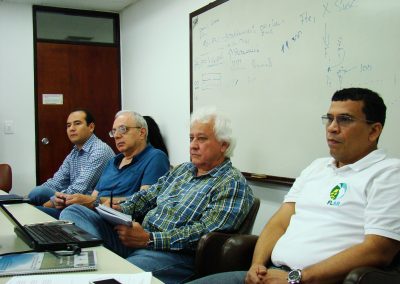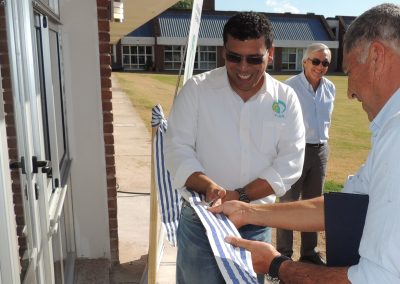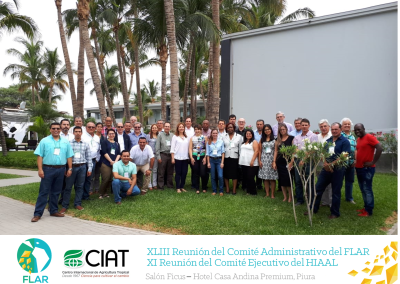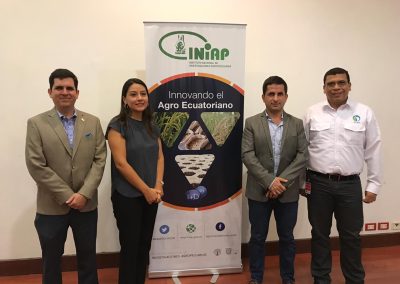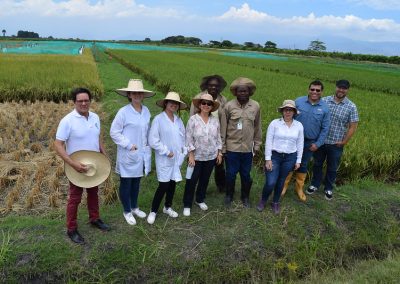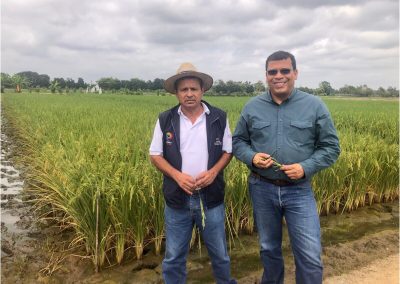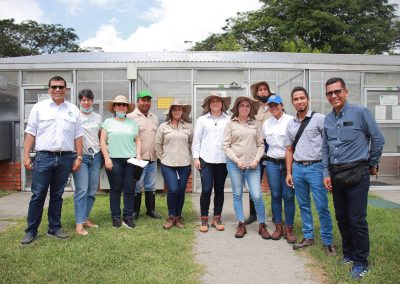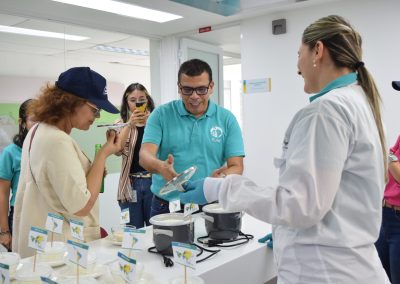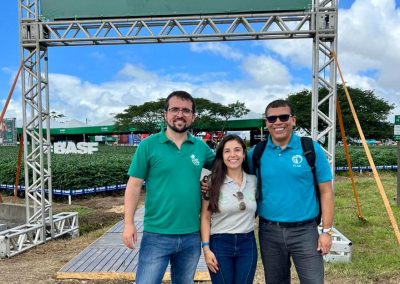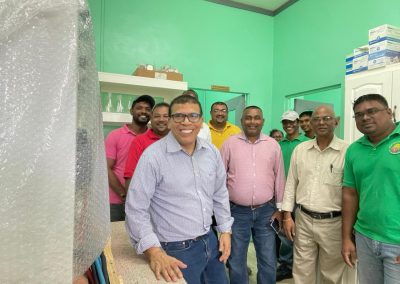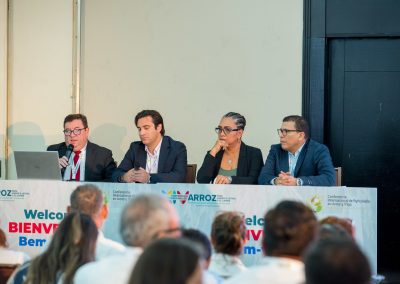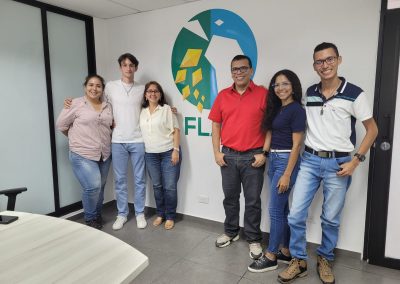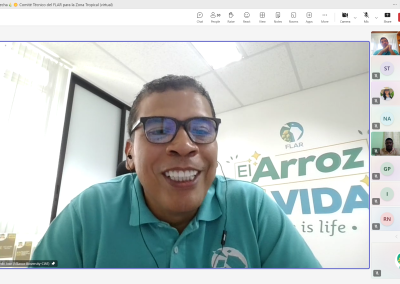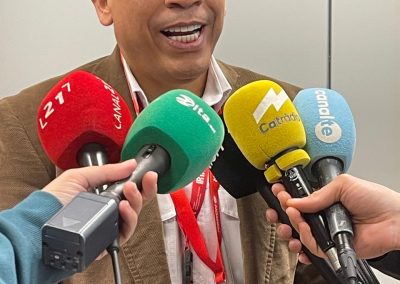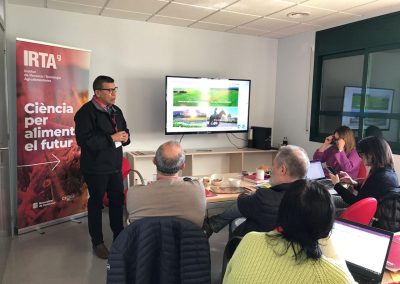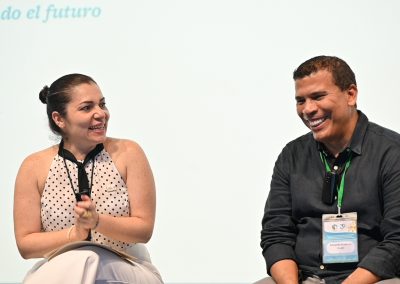When Eduardo Graterol became Executive Director of FLAR in March 2013, the regional rice landscape was full of challenges: varieties in need of renewal, hard-to-control phytosanitary threats, and a market that was beginning to demand quality like never before. Even so, his arrival was not marked by uncertainty, but by great anticipation—the kind generated by major challenges, reserved for those who arrive with a clear conviction and profound knowledge of their field.
From day one, Eduardo envisioned a sector that could evolve if science, solid alliances, diversification of funding sources, and a network of countries worked toward a common purpose.
The first steps were not easy. FLAR depended almost exclusively on membership fees, while international donors did not prioritize rice. But Eduardo persisted. He identified opportunities and paved the way for alliances that allowed the technical agenda to be diversified: data-driven agronomic practices, water management, environmental sustainability, emissions reduction, and integrated production systems. Always hand-in-hand with FLAR members.
That strategic momentum began to bear fruit. In this long decade of joint effort, FLAR members in 15 countries released more than 60 new rice varieties, making the institution’s germplasm a key component for regional competitiveness. In parallel, the agronomy program evolved into an accelerated adoption model that demonstrated, farm by farm, that it was possible to produce more, with lower costs, and with a reduced environmental impact.
Eduardo also understood that knowledge multiplies when it is shared. Under his leadership, thousands of technicians, students, and producers were trained. Large international conferences, in-person, and virtual courses were held, contributing to the formation of a new generation of professionals who now apply what they learned in their respective countries.
Alliances also flourished. From multinational companies interested in FLAR germplasm to the unprecedented collaboration with the National Bank of Panama to train its clients. Two regional offices were consolidated—in Uruguay and Panama—and an essential collaboration was strengthened with the Alliance of Bioversity International and CIAT, including the recent inauguration of the Seed Evaluation Area.
But Eduardo has always said that the most valuable asset of FLAR is not just its results, but its culture: the camaraderie, the collaborative spirit, that atmosphere in which technical meetings become gatherings of friends.
Today, as he closes this chapter and embarks on new endeavors, Eduardo summarizes his leadership in a single word: satisfaction. Satisfaction because the work was useful.
Finally, his farewell is a tribute to the organization’s engine: the team. “To my team, my gratitude for all the contributions you made, for always going the extra mile… and that potential was magnified because we have a very broad network of collaborators at CIAT and in the member countries who, and it’s not a cliché, made me feel that together we are stronger.”
